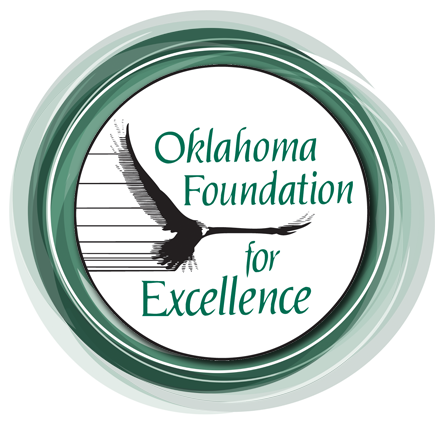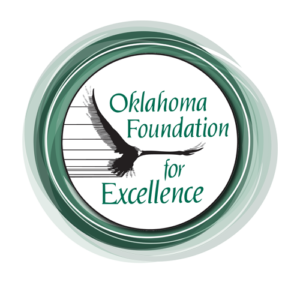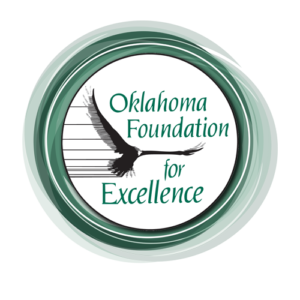2008 Outstanding Program Awards
Excellence in Education Program, Cheyenne Educational Foundation
Cheyenne’s Excellence in Education Program is a communitywide effort to encourage, recognize and reward academic achievement in grades 3 through 12. Co-sponsored by the Cheyenne Educational Foundation, Partners in Education and Chamber of Commerce, the program provides community-sponsored rewards to grade school and middle school students and scholarships to high school students who make As and Bs on their report cards. Cheyenne is a small town of 995 people in western Oklahoma. Forty percent of students in the district are eligible for free and reduced lunches; and only 21 percent of the adult residents have college degrees. “Many of the students fail to achieve their potential due to reduced emphasis on education in some households,” wrote Superintendent Alton Rawlins in nominating the program. “This program seeks to involve the whole community in motivating students to do their best.” Since 2000, Cheyenne’s Partners in Education Program has awarded “Excellence in Education” cards to elementary students on the honor rolls. Students can use the laminated cards to receive prizes or discounts at many local businesses, which proudly display large orange signs proclaiming, “We Support Excellence in Education.” At the high school level, honor roll students receive scholarships based on the number of As and Bs they earn. The scholarships can be applied to tuition at any educational institution. Last year, the program provided more than $19,000 in scholarships to 18 students. Organizers say the program has motivated students to excel in school and is sending a message throughout the community that, “it really is cool to be smart.”
Cultural Enrichment Grant Program, Okmulgee Education Foundation
Through its Cultural Enrichment Grant Program, the Okmulgee Education Foundation provides opportunities for students to participate in cultural and artistic events that many students might not otherwise experience. The grant program is the only one offered by the foundation that has no deadline or dollar limit in its application. Past grants have supported annual trips for high school students to attend touring Broadway productions in Tulsa and a theater-in-the round program that brings visiting Shakespearean actors to perform for senior English students. The grant program also supports the Young at Art Series, providing tickets for elementary students to attend live theater at Tulsa’s Performing Arts Center. Another beneficiary of the grant program is Okmulgee’s Spirit Choir, a group of elementary students who perform various musical genres at community and state events. The program has also sponsored visiting artists, band contests and a Renaissance Faire trip for aspiring middle school drama students. Okmulgee English teacher and nominator Gaylene Taylor said the cultural enrichment grants give educators the opportunity to transcend the lecture and textbook to provide creative learning opportunities in a variety of academic disciplines. “This program affords our youngsters many cultural enrichment opportunities that elevate learning from the dull and dry to the realm of innovation and excitement,” Taylor said.
Challenge Day, Putnam City Public Schools Foundation
Challenge Day, a character development program sponsored by the Putnam City Public Schools Foundation, is designed to reduce bullying and violence and increase students’ self-esteem. With the assistance of 100 adult volunteers, last year’s program served 400 high school students from a variety of social and economic backgrounds. Participants spent the morning participating in ice-breakers, soul-searching exercises and other activities to help them freely share their feelings and experiences with their peers. In the afternoon, students broke into small groups where they were encouraged to speak candidly about issues ranging from bullying and violence to intolerance and substance abuse. By the end of the day, students had an opportunity to take a stand against oppression, make amends for hurts they had caused each other and state their commitment to creating change in their school community. The intensive six-hour program is reinforced with follow-up activities throughout the school year. “The goals of Challenge Day are to change the culture inside the school and ultimately improve academic achievement,” said nominator Priscilla Cude, a school foundation board member. Since the program began, the number of students failing classes and the number of disciplinary incidents have decreased. School counselors have also reported a significant change in how students treat each other. “I didn’t realize how I have hurt my classmates,” one student commented following Challenge Day. “I didn’t understand the power of my words.”
Breakfast and Brown Bag Book Club, Stillwater Public Education Foundation
The Breakfast and Brown Bag Book Club, sponsored by the Stillwater Public Education Foundation, was initiated in 2006 by a high school English teacher who wanted to help students develop a lifetime love of reading and encourage literary discussion at school and in the community. Through the book club, students vote on a contemporary work of literature and meet quarterly to discuss their readings, either at a before-school breakfast or over the lunch hour. The books are purchased through the school foundation grant. Past selections have included “Lovely Bones” by Alice Sebold, “Life of Pi” by Yann Martel, “The Kite Runner” by Khaled Hosseini and “The Alchemist” by Paulo Coelho. The book club meetings, while attended by teachers, are primarily driven by the students themselves, who number on average 60 per meeting. “I couldn’t be happier with the success of the book club,” wrote English teacher Debbie Dawson. “Students are enjoying reading and discussing literature with minimal input from me. Many tell me they are sharing their books with family members and discussing it at home, while others are sharing and discussing books with their friends outside of our regular meetings.” The program has other benefits as well. As a result of the book club meetings, teachers report that student-led discussions are occurring more often in their classrooms.




